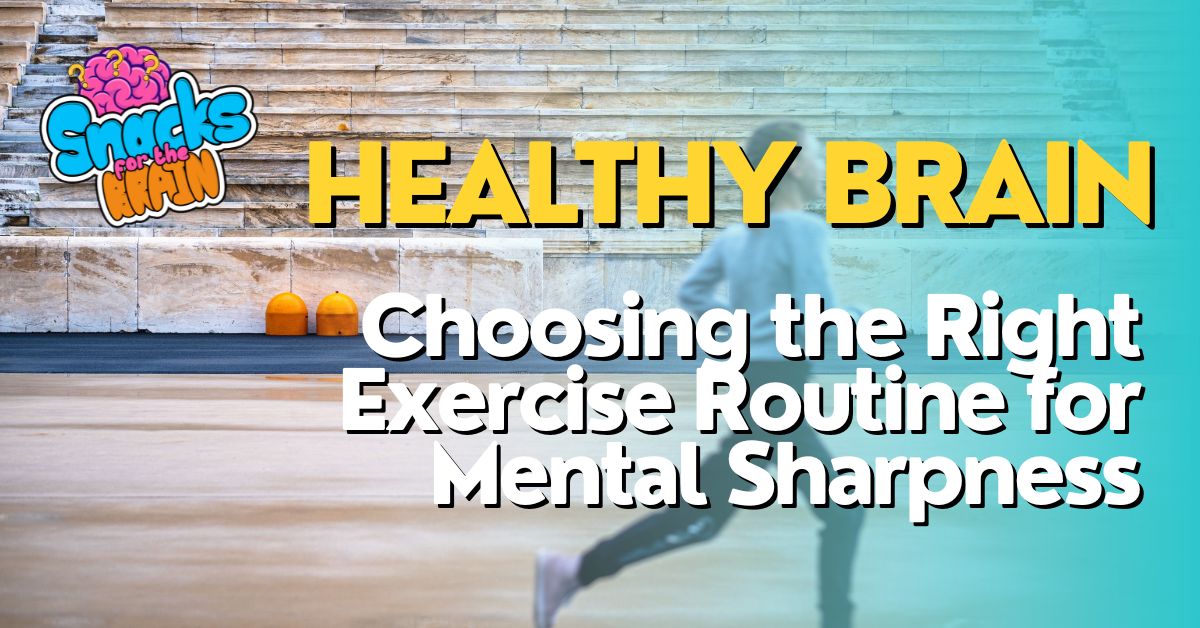Exercise has been demonstrated to offer numerous advantages for individuals with cognitive impairment and dementia. Regular physical activity can enhance cognitive function, decrease the likelihood of developing dementia, and decelerate the disease’s progression. Studies indicate that consistent exercise can improve memory, attention, and executive function in those with cognitive impairment.
Moreover, exercise can reduce dementia risk by enhancing cardiovascular health, diminishing inflammation, and promoting neurogenesis. Physical activity has also been shown to positively affect mood and behavior in individuals with cognitive impairment and dementia. It can alleviate symptoms of depression and anxiety, enhance sleep quality, and boost overall well-being.
Exercise can also help manage behavioral symptoms common in dementia, such as agitation, aggression, and wandering. The benefits of exercise for cognitive impairment and dementia are substantial and can significantly impact the quality of life for affected individuals. Regular physical activity also improves cardiovascular health, reduces the risk of developing other chronic conditions like diabetes and hypertension, and enhances overall physical function.
This is particularly crucial for individuals with cognitive impairment and dementia, who may be at higher risk for these conditions. Engaging in regular exercise can improve overall health and decrease the likelihood of developing additional health complications. Furthermore, exercise can help maintain independence and mobility, which is vital for individuals with cognitive impairment and dementia.
Key Takeaways
- Regular exercise can help improve cognitive function and slow the progression of dementia.
- Aerobic exercise, strength training, and balance exercises are recommended for individuals with cognitive impairment and dementia.
- Exercise can improve blood flow to the brain, promote the growth of new brain cells, and reduce the risk of developing dementia.
- Exercise can help manage behavioral symptoms of dementia such as agitation and aggression.
- When implementing an exercise routine for individuals with cognitive impairment and dementia, it’s important to start slow and gradually increase intensity, and to choose activities that are enjoyable and engaging.
The types of exercise recommended for individuals with cognitive impairment and dementia
Aerobic Exercise for Cardiovascular Health and Brain Function
Aerobic exercise, such as walking, swimming, or cycling, is particularly beneficial for individuals with cognitive impairment and dementia. This type of exercise improves cardiovascular health, reduces inflammation, and promotes the growth of new brain cells. Research has shown that aerobic exercise can improve cognitive function and reduce the risk of developing dementia.
Strength Training for Muscle Strength and Balance
In addition to aerobic exercise, strength training exercises, such as lifting weights or using resistance bands, can help improve muscle strength, balance, and overall physical function in individuals with cognitive impairment. This type of exercise is essential for maintaining independence and reducing the risk of falls.
Flexibility and Balance Exercises for Overall Physical Function
Flexibility and balance exercises, such as yoga, tai chi, and stretching, are also crucial for individuals with cognitive impairment and dementia. These exercises can improve flexibility, reduce the risk of falls, and improve overall physical function. A combination of aerobic, strength training, flexibility, and balance exercises is recommended to improve overall physical function and cognitive health.
Tailoring Exercise Recommendations to Individual Preferences and Abilities
When recommending exercise, it is essential to consider the individual’s preferences and abilities. Some individuals may prefer group exercise classes or activities such as dancing or gardening, while others may prefer individual activities such as walking or swimming. Exercise recommendations should be tailored to the individual’s interests and abilities to ensure that they are able to engage in regular physical activity that they enjoy.
How exercise can improve cognitive function and slow the progression of dementia

Exercise has been shown to have a significant impact on cognitive function in individuals with cognitive impairment and dementia. Regular physical activity can help improve memory, attention, and executive function in individuals with cognitive impairment. Research has shown that exercise can promote the growth of new brain cells, improve blood flow to the brain, and reduce inflammation, all of which can contribute to improved cognitive function.
Additionally, exercise can help reduce the risk of developing dementia by improving cardiovascular health and reducing the risk factors associated with the disease. Furthermore, exercise has been shown to slow the progression of dementia in individuals who are already diagnosed with the condition. Regular physical activity can help delay the onset of symptoms, reduce the rate of cognitive decline, and improve overall quality of life for individuals living with dementia.
Research has shown that individuals who engage in regular exercise experience slower rates of cognitive decline compared to those who are sedentary. Overall, exercise can have a profound impact on cognitive function and the progression of dementia in individuals with cognitive impairment. In addition to improving cognitive function, exercise has been shown to have a positive impact on mood and behavior in individuals with cognitive impairment and dementia.
Physical activity can help reduce symptoms of depression and anxiety, improve sleep quality, and increase overall well-being. Additionally, exercise can help manage behavioral symptoms such as agitation, aggression, and wandering, which are common in individuals with dementia. Overall, the benefits of exercise for cognitive impairment and dementia are significant and can have a profound impact on the quality of life for individuals living with these conditions.
The role of exercise in managing behavioral symptoms of dementia
Exercise plays a crucial role in managing behavioral symptoms of dementia in individuals with cognitive impairment. Physical activity has been shown to have a positive impact on mood and behavior in individuals with cognitive impairment and dementia. Regular exercise can help reduce symptoms of depression and anxiety, improve sleep quality, and increase overall well-being.
Additionally, exercise can help manage behavioral symptoms such as agitation, aggression, and wandering, which are common in individuals with dementia. Furthermore, physical activity can provide a sense of routine and structure for individuals with cognitive impairment, which can help reduce confusion and disorientation. Engaging in regular exercise can provide a predictable schedule for individuals with dementia, which can help reduce anxiety and improve overall well-being.
Additionally, exercise can provide opportunities for social interaction and engagement, which can help reduce feelings of isolation and loneliness in individuals with cognitive impairment. Overall, exercise plays a crucial role in managing behavioral symptoms of dementia by improving mood and behavior, providing structure and routine, and promoting social interaction and engagement. By incorporating regular physical activity into the daily routine of individuals with cognitive impairment and dementia, caregivers can help manage behavioral symptoms and improve overall quality of life for their loved ones.
Tips for implementing an exercise routine for individuals with cognitive impairment and dementia
Implementing an exercise routine for individuals with cognitive impairment and dementia requires careful planning and consideration of the individual’s abilities and preferences. It is important to start slowly and gradually increase the intensity and duration of the exercise routine to ensure that it is safe and enjoyable for the individual. Additionally, it is important to consider the individual’s interests when selecting activities to ensure that they are engaged and motivated to participate in regular physical activity.
Furthermore, it is important to provide clear instructions and demonstrations for each exercise to ensure that the individual understands how to perform the activities safely. Caregivers should provide encouragement and support throughout the exercise routine to help motivate the individual to participate. Additionally, it is important to monitor the individual’s response to the exercise routine and make adjustments as needed to ensure that it is safe and effective.
In addition to implementing an exercise routine, it is important to create a supportive environment that encourages physical activity. Caregivers should provide opportunities for social interaction and engagement during exercise by participating in activities together or involving other family members or friends. Additionally, it is important to create a safe and accessible space for exercise by removing obstacles and providing appropriate equipment as needed.
The importance of a multi-faceted approach to treating cognitive impairment and dementia, including exercise

Physical Activity: A Crucial Component
In addition to medication management and other therapies, regular physical activity plays a vital role in improving cognitive function, managing behavioral symptoms, and promoting overall well-being in individuals with cognitive impairment and dementia. By incorporating regular exercise into the treatment plan, caregivers can help improve quality of life and slow the progression of the disease.
Cognitive Stimulation and Social Engagement
A multi-faceted approach to treating cognitive impairment should also include cognitive stimulation activities such as puzzles, games, or music therapy to help maintain cognitive function and promote brain health. Additionally, social engagement activities such as group outings or community events can help reduce feelings of isolation and loneliness in individuals with cognitive impairment.
A Holistic Approach to Improving Quality of Life
By addressing the physical, cognitive, emotional, and social needs of individuals living with cognitive impairment through a multi-faceted approach, caregivers can help improve overall quality of life for their loved ones. This comprehensive approach can help individuals with cognitive impairment and dementia live a more fulfilling life, despite their condition.
The potential barriers to exercise for individuals with cognitive impairment and dementia and how to overcome them
There are several potential barriers to exercise for individuals with cognitive impairment and dementia that caregivers should be aware of in order to effectively implement an exercise routine. One common barrier is physical limitations or mobility issues that may make it difficult for individuals with cognitive impairment to engage in certain types of exercises. Caregivers should work with healthcare professionals to identify safe and appropriate exercises that accommodate any physical limitations or mobility issues.
Another potential barrier is lack of motivation or interest in physical activity due to apathy or depression commonly associated with cognitive impairment. Caregivers should provide encouragement and support throughout the exercise routine to help motivate the individual to participate. Additionally, it is important to consider the individual’s interests when selecting activities to ensure that they are engaged and motivated to participate in regular physical activity.
Furthermore, environmental barriers such as lack of access to safe outdoor spaces or appropriate equipment may also hinder regular physical activity for individuals with cognitive impairment. Caregivers should create a supportive environment that encourages physical activity by providing opportunities for social interaction during exercise by participating in activities together or involving other family members or friends. Overall, by identifying potential barriers to exercise for individuals with cognitive impairment and dementia such as physical limitations or mobility issues lack of motivation or interest in physical activity due to apathy or depression commonly associated with cognitive impairment environmental barriers such as lack of access to safe outdoor spaces or appropriate equipment caregivers can work towards overcoming these barriers through careful planning consideration of individual abilities preferences encouragement support creating a supportive environment that encourages physical activity providing opportunities for social interaction during exercise among other strategies.
By addressing these barriers caregivers can effectively implement an exercise routine that improves quality of life slows progression of disease for their loved ones living with cognitive impairment or dementia
If you are interested in learning more about the importance of exercise for maintaining mental sharpness, you should check out the article «Choosing the Right Exercise Routine for Mental Sharpness» on Intelligence Snacks and Hacks. This article provides valuable insights into how different types of exercise can benefit cognitive function and overall brain health. It’s a great resource for anyone looking to incorporate exercise into their daily routine to support their cognitive well-being. (source)
FAQs
What is cognitive impairment and dementia?
Cognitive impairment refers to a decline in cognitive abilities such as memory, attention, and problem-solving skills. Dementia is a more severe form of cognitive impairment that interferes with daily functioning.
How does exercise benefit cognitive impairment and dementia?
Exercise has been shown to improve cognitive function, reduce the risk of developing dementia, and slow the progression of cognitive decline in individuals with dementia. It can also improve mood, reduce stress, and enhance overall well-being.
What types of exercise are beneficial for cognitive impairment and dementia?
Aerobic exercise, such as walking, swimming, or cycling, has been shown to have the most significant impact on cognitive function. Strength training and balance exercises are also important for overall physical health and well-being.
How much exercise is recommended for individuals with cognitive impairment and dementia?
The general recommendation is at least 150 minutes of moderate-intensity aerobic exercise per week, along with strength training exercises at least two days per week. However, it’s important to consult with a healthcare professional to determine the most appropriate exercise regimen for individual needs.
Are there any risks or precautions to consider when exercising with cognitive impairment or dementia?
Individuals with cognitive impairment or dementia may have physical limitations or safety concerns that need to be addressed before starting an exercise program. It’s important to work with a healthcare professional to develop a safe and effective exercise plan.
Can exercise alone prevent or cure cognitive impairment and dementia?
While exercise can significantly reduce the risk of developing dementia and improve cognitive function, it is not a cure for dementia. It is most effective when combined with other healthy lifestyle choices, such as a balanced diet, social engagement, and cognitive stimulation.





